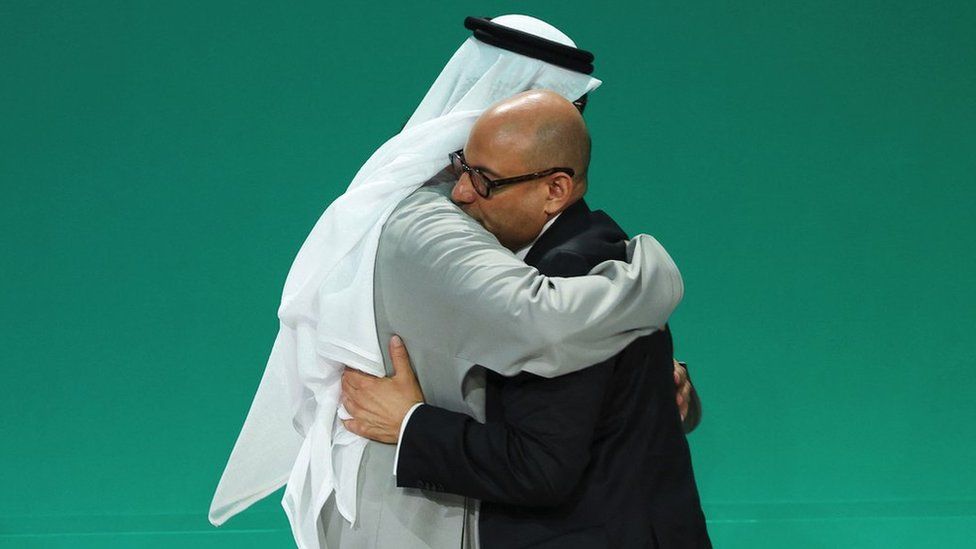-

-
-
Loading

Loading

After the conclusion of the recent climate conference in Dubai, there has been a flurry of positive statements, but the question remains whether this agreement will truly have a significant impact on climate change. This historic agreement finally acknowledges the role of fossil fuel emissions in driving up temperatures and sets the stage for a decline in the use of coal, oil, and gas in the future. However, while this is a major step forward in UN terms, it is unlikely to be sufficient in achieving the main goal of keeping temperatures under 1.5C this century. The most significant aspect of the agreement is the transition away from fossil fuels in energy systems, which marks a milestone moment. However, the language used in the agreement is much weaker than what many countries had hoped for. The UAE presidency initially included strong text calling for a phase-out of fossil fuels from the start of the meeting. However, due to opposition from various countries, they had to drop it from the draft agreement. This decision caused disappointment among progressive voices and led to blame being cast on oil producers. However, it is important to note that countries like Saudi Arabia were not solely responsible for softening the text. Middle-income developing countries also expressed uncertainty about completely phasing out fossil fuels, as they relied on revenues from their sale to fund their transition to greener energy. For example, Colombia complained that moving away from fossil fuels had led credit agencies to downgrade their rating, resulting in higher costs for international loans for greener energy. The final agreement now calls on countries to transition away from fossil fuels specifically in energy systems, but not in other sectors like plastics, transport, or agriculture. Additionally, the agreement includes commitments to triple renewables and energy efficiency by 2030, which will help reduce emissions. The use of wind and solar energy is expected to displace some coal, oil, and gas. In terms of future commitments, countries are required to submit stronger carbon reduction plans by 2025. The actions of major players like China and India in rapidly transitioning to green energy could have a significant impact on global efforts. It is worth mentioning that the agreement recognizes the use of "transitional fuels," which is code for continuing the use of natural gas. There is also support for carbon capture and storage, a technology favored by oil producers. Moreover, small island states expressed their frustration that the agreement was finalized without their input. They view the lack of immediate emissions cuts as a major weakness that threatens their way of life. German foreign minister Annalena Baerbock acknowledged these concerns, stating that the deal in Dubai is just a starting point. She emphasized the need for ongoing efforts and highlighted the upcoming COPs in Azerbaijan and Brazil as part of a larger package deal to address climate change. Overall, there is a sense that as the cost of renewables continues to decline, the pressure on fossil fuels will grow. Many believe that in 2025, Brazil's President Lula will have the opportunity to completely eliminate the use of fossil fuels. However, it is clear that further action and stronger commitments are needed to address the urgent challenge of climate change.